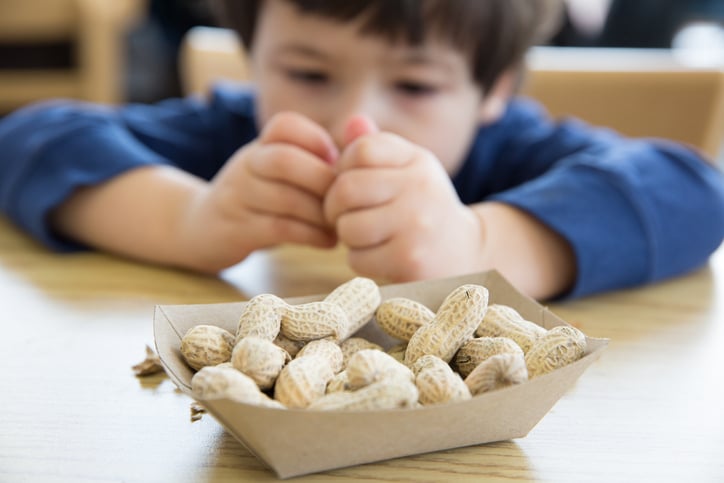For many parents, keeping their children safe from food allergies can be a daunting task. While some of the common triggers, like peanuts and dairy, are easy to recognize, there are other substances that may not be as commonly known or even suspected.
As such, early detection is key in helping to prevent potentially serious allergic reactions. In this blog post, we’ll provide expert tips on how to detect, prevent, and manage food allergies in children.
 Detecting Food Allergies in Children
Detecting Food Allergies in Children
If your child has already been diagnosed with a food allergy, you may be able to identify the symptoms associated with ingesting the allergens based on past experiences. However, if you’re concerned that your child may have an undiagnosed allergy, it’s important to seek the advice of a qualified board-certified allergist. Signs that your child may have a food allergy include:
- Hives or rash
- Swelling of the face, eyes, lips, tongue, throat, and/or other parts of the body
- Wheezing or difficulty breathing
- Severe nausea, vomiting, or abdominal pain
- Diarrhea or constipation
A doctor will be able to suggest one or more tests – such as skin prick testing, blood testing, and oral food testing – which can help confirm if your child has an allergy. It is best to consult with a medical professional in order to determine the best course of action in diagnosing and managing any food allergies.
Preventing Food Allergies in Children
To help prevent the onset of food allergies, it’s important to introduce a variety of foods into your child’s diet at an early age. This is especially true for those with a family history of food allergies; introducing potential allergens between 4-6 months of age can help reduce the risk of developing an allergy.
It’s also important for parents to be aware of the foods that are most likely to cause allergies in children – such as milk, eggs, peanuts, and tree nuts – so that they can take extra precautions when introducing them into their child’s diet.
Managing Food Allergies in Children
Once your child has been diagnosed with a food allergy, it’s important to create an action plan that outlines what to do in case of an allergic reaction. This should include the steps needed to treat the reaction and any medications that may be necessary. It is also important to discuss your child’s diet with your doctor or nutritionist to make sure they are receiving the nutrients they need while avoiding any potential allergens.
When it comes to eating out, it’s important to be aware of the foods that your child is consuming. When ordering meals at a restaurant, you can request allergen-free options or ask the chef about the ingredients used in each dish – this will help ensure that your child avoids any food-based triggers.
Work with the Allergy Experts at Allergy & Clinical Immunology!
At the end of the day, navigating food allergies in children can be a difficult task – but with the right strategies and pediatric food allergy treatment in place, you can help ensure your child remains safe and healthy. At Allergy & Clinical Immunology, we treat all food allergies, including milk and other dairy products, corn, peanuts, tree nuts, shellfish, different types of fish, soy, wheat, and sesame.
Our staff of expert physicians and physician assistants are committed to serving patients by providing a solid knowledge base and a clear understanding of their pediatric food allergy treatment. Contact us today to learn more!